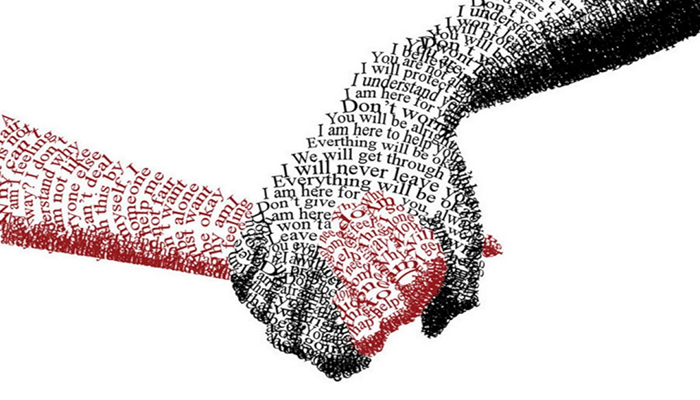12 documentaries launched to promote tolerance and inclusiveness
In a bid to counter extremism and tribal conflicts that seem to have intensified in different parts of Sindh, especially in Khairpur, Shikarpur and Jacobabad districts, a filmmaking organisation has initiated a documentary programme titled ‘Stories of Sindh’ to encourage the youth to come together to help restore the reputation of Sindh as a region which historically nourished inclusive societies.
The Mehrdar Art & Production (MAP) had selected and trained 25 youths each from Khairpur, Shikarpur and Jacobabad districts in the documentary production between July 17 and July 22. The participants produced 12 films based on positive narratives, using examples of diversity and communal harmony.
The virtual launch of the 12 films was held on Sunday through a virtual session attended by participants and the trainer. However, a physical launch has also been announced, which will take place on October 9, 2020, at Shah Abdul Latif Bhittai University, Khairpur.
The short documentaries with the maximum length of four minutes include ‘An Inspirational Polio Worker’, ‘Art Knows No Limits’, A Tailor’s Journey’, ‘Unvoiced Citizens’, ‘Sports for Women Empowerment’, ‘Preserving the National Literary Heritage’, ‘The Struggle for Freedom of Women’, ‘Using Radio for Social Change’, ‘A struggle for women education and peace’, ‘Empowering Women through Sports’, ‘Dream of a Humane and Peaceful Jacobabad’, and ‘Journey in Rhythm’.
The training was conducted by award winning filmmakers Haya Fatima Iqbal, Haseeb Halai and Ali Brohi. Haya said that during various stages of the workshop, participants came to understand how positive storytelling could bring communities together and how powerful documentaries could remind the audience about what was common between them and others.
She added that the documentary filmmaking focused on ‘grey’ instead of the ‘black and white’, and one of the main purposes of the medium of documentary was to find nuances in people’s lives that celebrated humanity and diversity instead of creating schisms.
“We had participants from different religions and sects, and we had a considerable female presence in a much larger group of men – but everyone respected each other and listened to each other’s thoughts and feelings very respectfully,” she said.
According to the founder of MAP, Muhammad Fahim, radicalisation in the parts of Sindh had resulted in intolerant environment which resulted in social and psychological disorders for many people including young girls and boys.
-
 Meghan Markle 'terrified' Over Possible UK Return
Meghan Markle 'terrified' Over Possible UK Return -
 Did Opiate Restrictions Lead To Blake Garrett's Death?
Did Opiate Restrictions Lead To Blake Garrett's Death? -
 Royal Expert Reflects On Princess Eugenie, Beatrice 'priorities' Amid Strained Relationship With Sarah, Andrew
Royal Expert Reflects On Princess Eugenie, Beatrice 'priorities' Amid Strained Relationship With Sarah, Andrew -
 Prince William's 'concerning' Statement About Andrew Is Not Enough?
Prince William's 'concerning' Statement About Andrew Is Not Enough? -
 50 Cent Gets Called Out Over Using Slur For Cardi B
50 Cent Gets Called Out Over Using Slur For Cardi B -
 Scientists Discover Rare Form Of 'magnets' That Might Surprise You
Scientists Discover Rare Form Of 'magnets' That Might Surprise You -
 Nancy Guthrie’s Kidnapper Will Be Caught Soon: Here’s Why
Nancy Guthrie’s Kidnapper Will Be Caught Soon: Here’s Why -
 AI Innovation Could Make Trade Secrets More Valuable Than Patents, Says Billionaire Investor
AI Innovation Could Make Trade Secrets More Valuable Than Patents, Says Billionaire Investor -
 King Charles Heckling: Calls For 10 BAFTAs And A Knighthood For Sign Language Interpreter
King Charles Heckling: Calls For 10 BAFTAs And A Knighthood For Sign Language Interpreter -
 Kim Kardashian Leaves Meghan Markle 'upset' With Latest 'cheap Shot'
Kim Kardashian Leaves Meghan Markle 'upset' With Latest 'cheap Shot' -
 Royal Expert On Andrew, Sarah Ferguson’s ‘entitled’ Behaviour Since Marriage
Royal Expert On Andrew, Sarah Ferguson’s ‘entitled’ Behaviour Since Marriage -
 Instagram And YouTube Accused Of Engineering Addiction In Children’s Brains
Instagram And YouTube Accused Of Engineering Addiction In Children’s Brains -
 Trump Reached Out To Police Chief Investigating Epstein In 2006, Records Show
Trump Reached Out To Police Chief Investigating Epstein In 2006, Records Show -
 Keke Palmer Praises Actor Who Inspired 'The Burbs' Role
Keke Palmer Praises Actor Who Inspired 'The Burbs' Role -
 Humans May Have 33 Senses, Not 5: New Study Challenges Long-held Science
Humans May Have 33 Senses, Not 5: New Study Challenges Long-held Science -
 Kim Kardashian Prepared To Have Child With Lewis Hamilton: 'Baby Using A Surrogate'
Kim Kardashian Prepared To Have Child With Lewis Hamilton: 'Baby Using A Surrogate'




